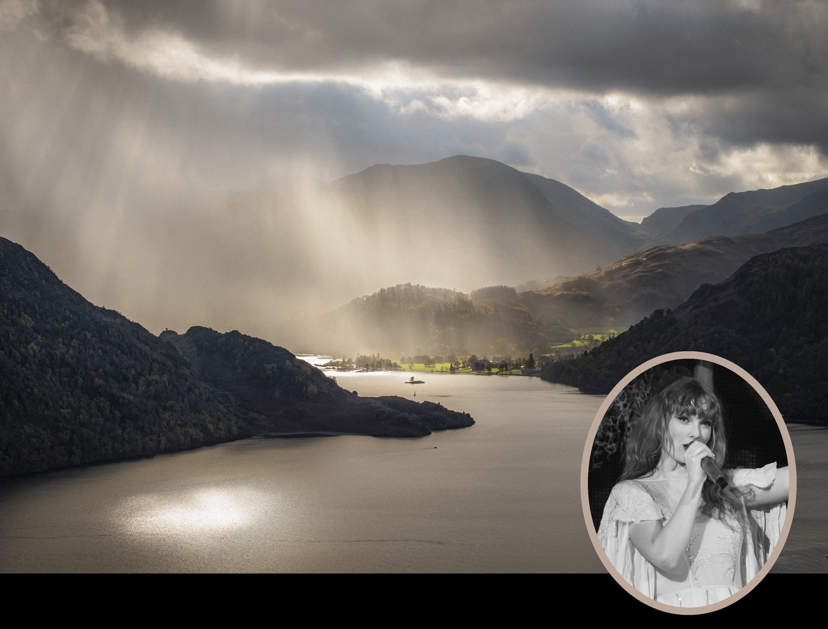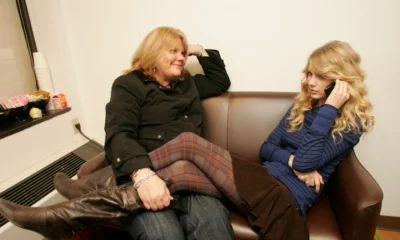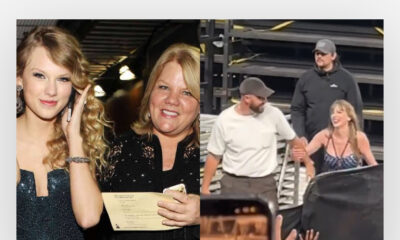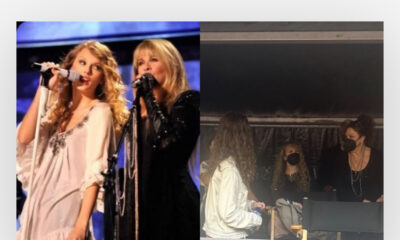NEWS
Taylor Swift in the walking footsteps of these tortured poets, found solace in British and being neglected in Europe by Travis Kelce

Tortured poets of the British countryside
In tribute to singer-songwriter Taylor Swift’s new album, Dixe Wills looks at six troubled talents who found solace in Britain’s soaring landscapes
Take me to the Lakes where
all the poets went to die
I don’t belong, and my
beloved, neither do you
Those Windermere peaks
look like a perfect place to cry
I’m setting off, but not
without my muse…
So wrote global phenomenon Taylor Swift (above) about the Lake District, an area she got to know during her six-year relationship with the English actor Joe Alwyn.
With her 11th studio album titled The Tortured Poets Department, the musician appears ready to unleash more songs about anguished versifiers. The early signs look promising: one of the bonus tracks is titled ‘The Albatross’, which must surely be a meditation on the misused seabird in Samuel Taylor Coleridge’s ‘The Rime of the Ancient Mariner’.
Though it’s not historically accurate to say that all the poets went to the Lake District to die, as Swift avers (though if you can’t take poetic licence when writing about poets, when can you?), Britain has certainly had its fair share of tortured bards. Many have struggled with depression, grief, alcoholism, drug addiction or mental illness. For some, their torture has provided the manure out of which their art has blossomed, while for others, their affliction has been truly debilitating or even fatal.
Of course, given the autobiographical nature of many of Swift’s songs, the album title could simply be making reference to Alwyn, with whom she parted ways in 2023. The actor happens to be in a WhatsApp group with fellow thespians Andrew Scott and Paul Mescal, called ‘The tortured man club’.
But if the new release is indeed a paean to tortured poets, here are half a dozen from around Britain who would very much fit the bill. Five are well-known, while one, Violet Jacob, is long overdue her place in the pantheon of tormented greats.
Listen to Taylor Swift’s song The Lakes
What charms does Nature at the spring put on, When hedges unperceived get stain’d in green; When even moss, that gathers on the stone, Crown’d with its little knobs of flowers is seen… From ‘Spring’ by John Clare
John Clare
John Clare (1793–1864) was a rare thing in the 19th century: a poet from the ‘labouring classes’ whose work actually found recognition. Sadly, ‘the Northamptonshire peasant poet’ was also prone to a mental illness that saw him spend the last third of his life in asylums.
A poverty-stricken young man, he wrote his first collection – Poems Descriptive of Rural Life and Scenery – to earn money to keep his parents from destitution. His country upbringing gave him a keen eye for the rhythms of nature:
HARES AT PLAY
Then out they sturt again and
round the hill
Like happy thoughts dance squat
and loiter still
Till milking maidens in the
early morn
Gingle their yokes and start them
in the corn
Through well known beaten paths
each nimbling hare
Sturts quick as fear – and seeks its
hidden lair
Several other of Clare’s volumes met with acclaim, but sales dwindled until he could no longer support his wife and seven children. The poet was then beset by bizarre delusions. Fearless of mockery, he first claimed he was a prize fighter, then Lord Byron, then Shakespeare. The asylum beckoned. He continued to write poems while confined, including one, published in 1848 – ‘I am!’ – that’s considered among his best.
The cottage where he found his voice, so to speak, now contains a museum dedicated to his memory. It’s in the village of Helpston in Peterborough. clarecottage.org
In Our Time: John Clare
bbc.co.uk/sounds/play/b08cstfr
Violet Jacob’s poem ‘The Wild Geese’ was shortlisted in a 2006 BBC Radio Scotland poll to find the nation’s favourite poems
Violet Jacob
The First World War broke the hearts of countless mothers. One of those mothers was the Scottish poet Violet Jacob (1863–1946), who one day in 1916 received the dread news that her only child, Harry, had been killed at The Somme.
No red poppy would ever bring him back and she was wracked by grief for the rest of her life, often pouring her sadness into her poetry.
One of her best known poems is ‘The Wild Geese’, a conversation with the north wind written in her habitual Scots vernacular. It dwells on a yearning to be home in the countryside she loved:
And far abune the Angus straths
I saw the wild geese flee,
A lang, lang skein o’ beatin’ wings wi’
their heids towards the sea,
And aye their cryin’ voices trailed ahint
them on the air
O Wind, hae maircy, haud yer
whisht, for I daurna listen mair!’
Jacob, a great-grandaughter of William IV, was born in the rather grand and extravagantly baroque House of Dun. Visit in autumn or winter and you may see the thousands of wild geese that flock to the estate each year.

























